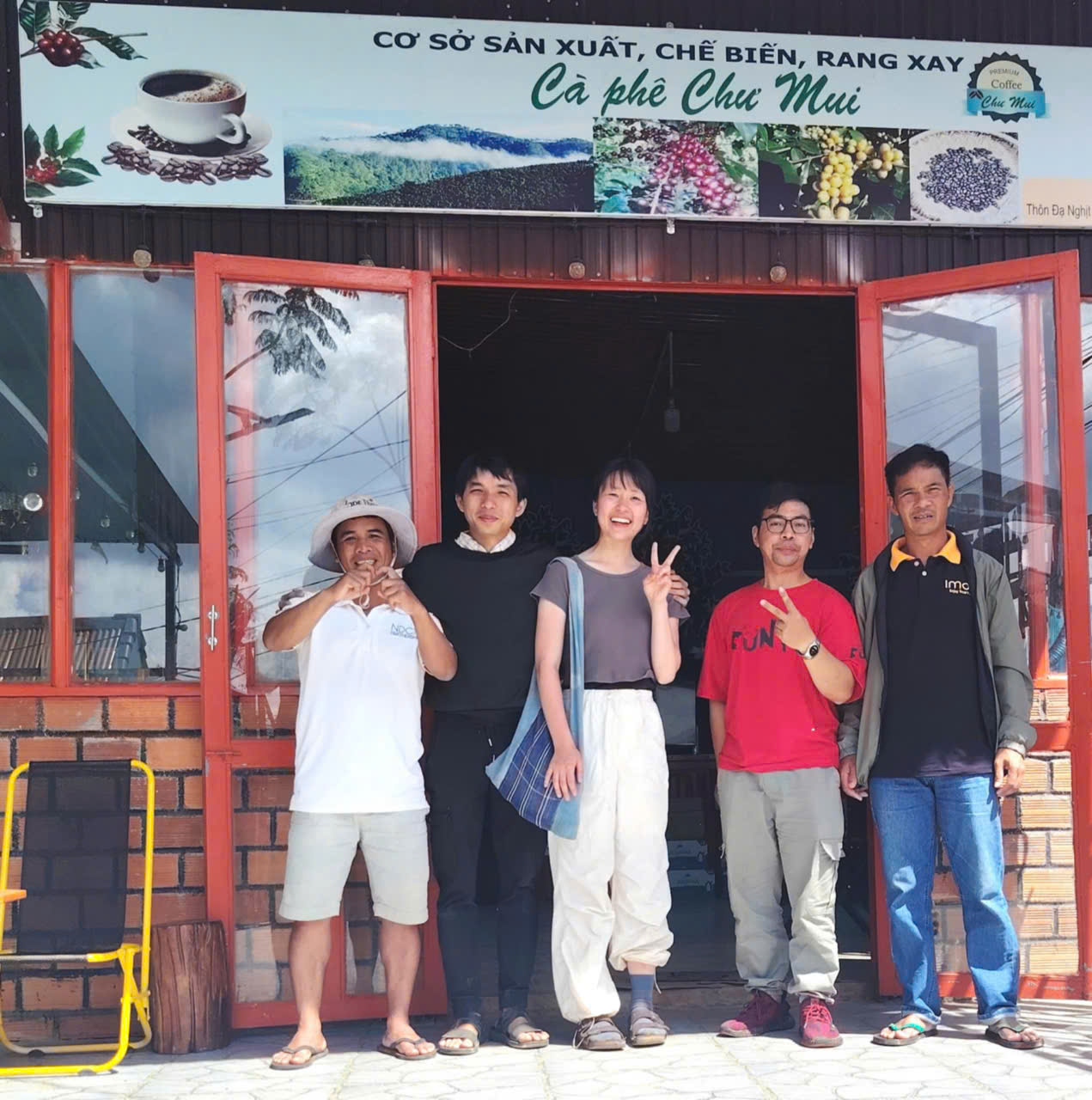
I didn’t come to Xã Lát seeking a story — I came to verify one.
As part of HuyEco’s preparation for the 2025 coffee season, I visited this highland commune to assess the readiness of farms transitioning toward regenerative practices. My role is layered. Beyond supporting NGOs working in the region, I’m also a coffee producer with over eight years of hands-on experience growing, sourcing, and roasting sustainable coffee. My café, HuyEco Coffee & Culture, is based in Da Lat, and we’ve distributed whole beans across Vietnam since we started.
I came here not to impose, but to listen — and to better understand where meaningful partnerships can be built, starting from the soil.

Xã Lát sits at roughly 1,500 meters above sea level, nestled in Da Lat’s cold, hilly terrain. The farmers here belong to the K’Ho Chil ethnic group — a branch of the wider K’Ho community with distinct cultural heritage. Their primary livelihood is agriculture: coffee, vegetables, and flowers. While many traditional practices have faded through history, some persist quietly — in the way land is cared for, and food is shared.
The transition toward sustainable farming is slow, but intentional. I met several households who’ve stopped using herbicides, now relying on composted chicken manure, fish extract, and natural nitrogen. These techniques aren’t just learned from NGOs — they’re remixed with ancestral knowledge, and adapted for the reality of the hills.
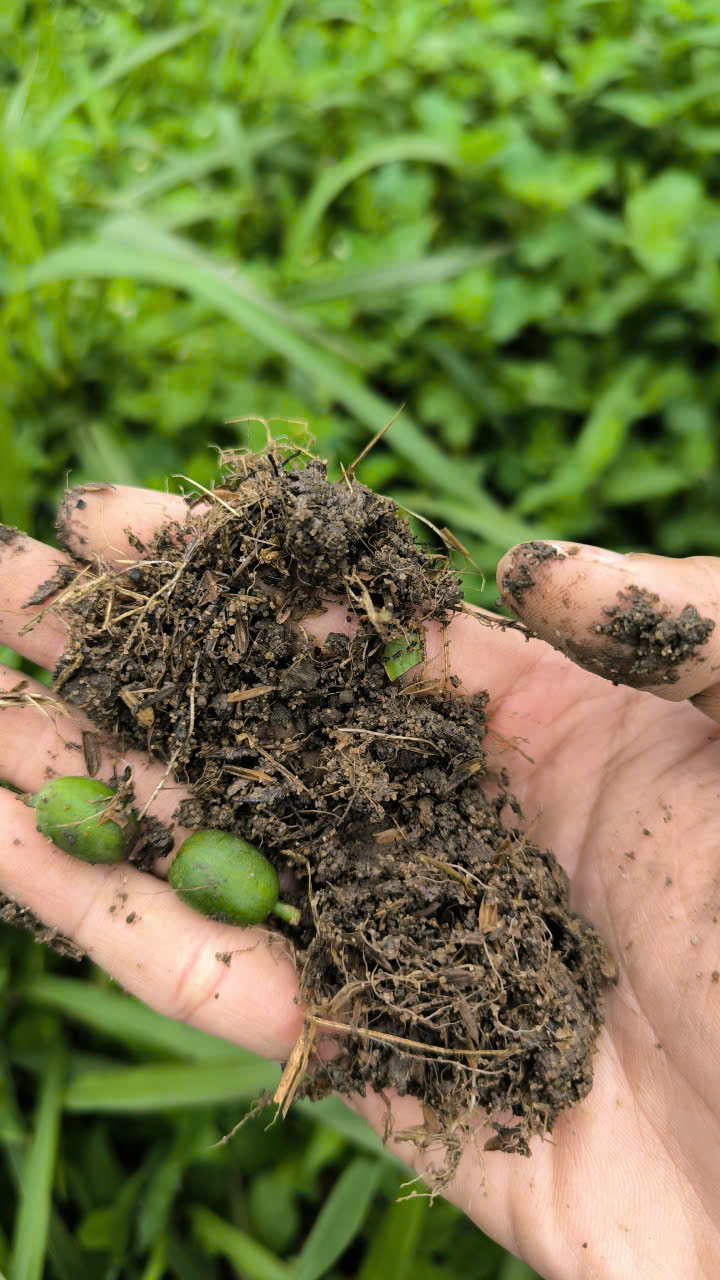
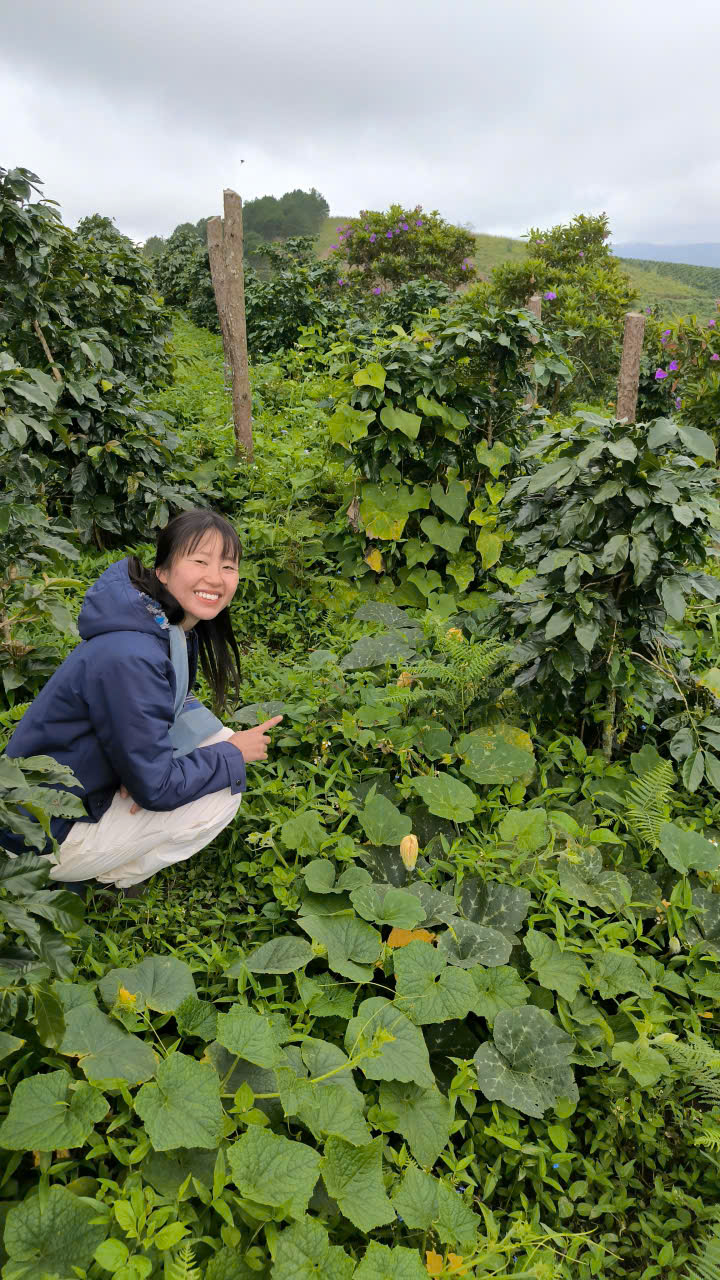
Among them is a farmer in his early forties who leads the local cooperative and serves as the commune’s agricultural advisor. He welcomed me into his farm, and later to a village café run by cooperative members. They roast and brew their own coffee — no branding, no slogans, just honest beans served by those who grow them.
He has been pursuing sustainable practices for nearly a decade. I watched him apply fermented compost with care. His farm hasn’t seen herbicides in 13 years, and the soil — thick, dark, resilient — tells its own story.
Though he didn’t dwell on yield issues, I could read the patterns. Based on my own eight years of farming experience, I estimate that his output may fall by 30% this season compared to conventional chemical-based methods. But he spoke with quiet satisfaction about something else: he can now harvest and eat from his own garden without worrying about toxins.
“Coffee used to only bring money,” he said. “Now it brings food, health, and dignity.”
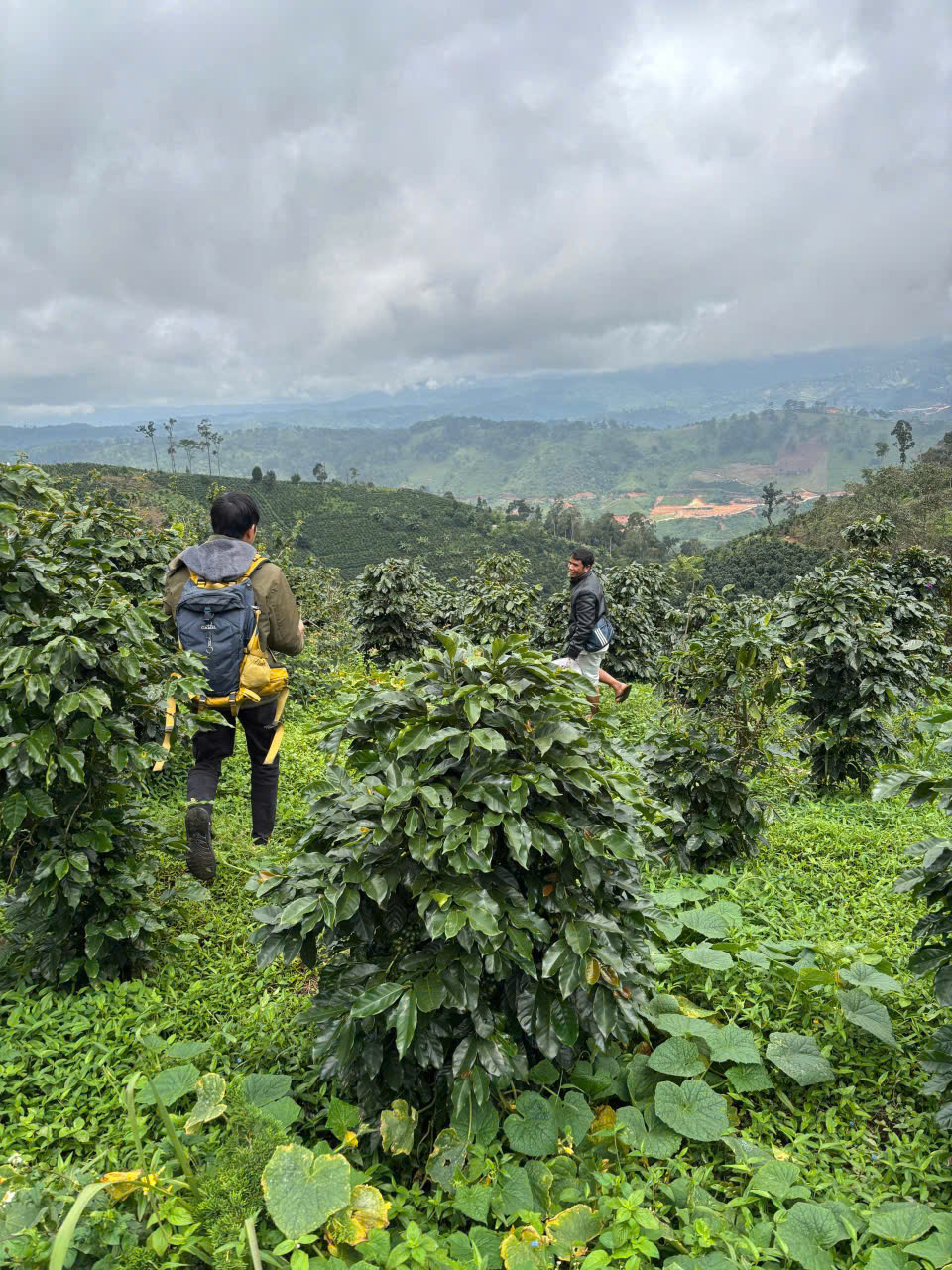
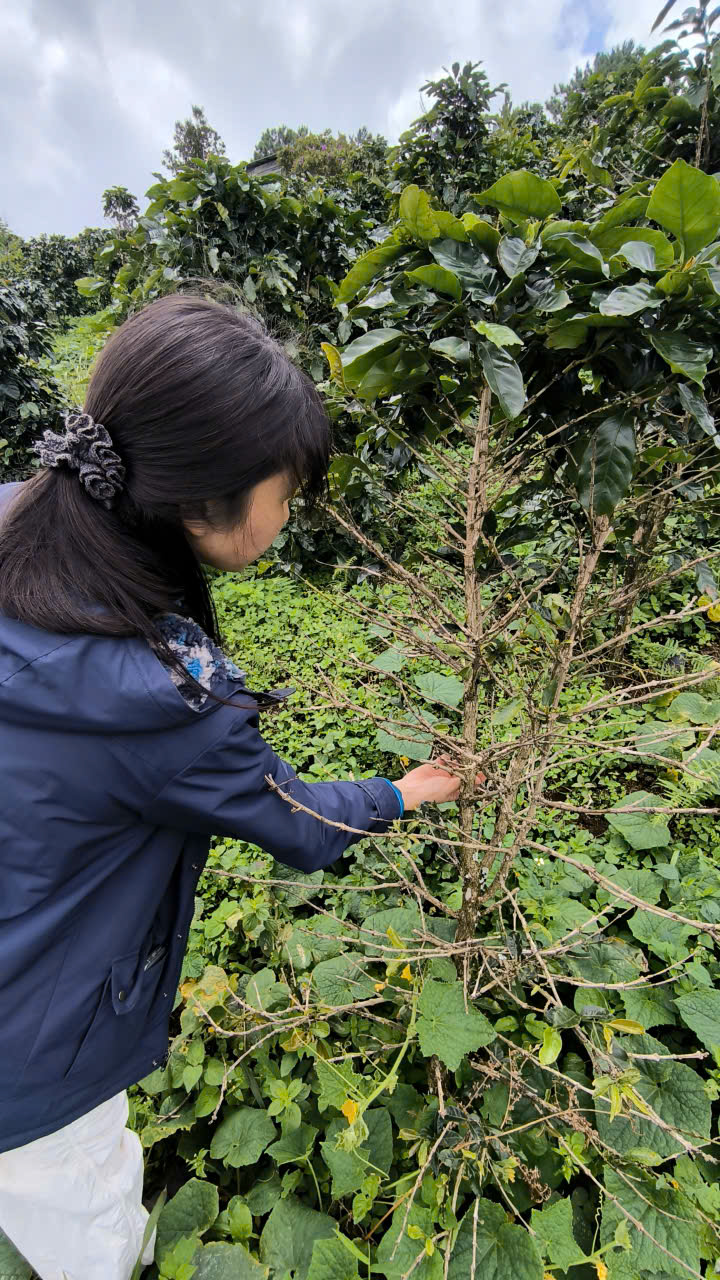
That moment stuck with me.
After nearly a decade committed to regenerative agriculture myself, I met a farmer who’s done the same, quietly shaping his community without waiting for anyone else. He isn’t asking for charity — he’s making a case for value. And he deserves to be met with respect, not pity.
That’s why I document these visits — not to glorify farmers or tell romantic stories, but to understand what’s already working. My goal is to find viable pathways to support farmers who’ve already made the leap, whether through direct sourcing, knowledge sharing, or small-scale collaboration through our café and our website huyeco.vn.
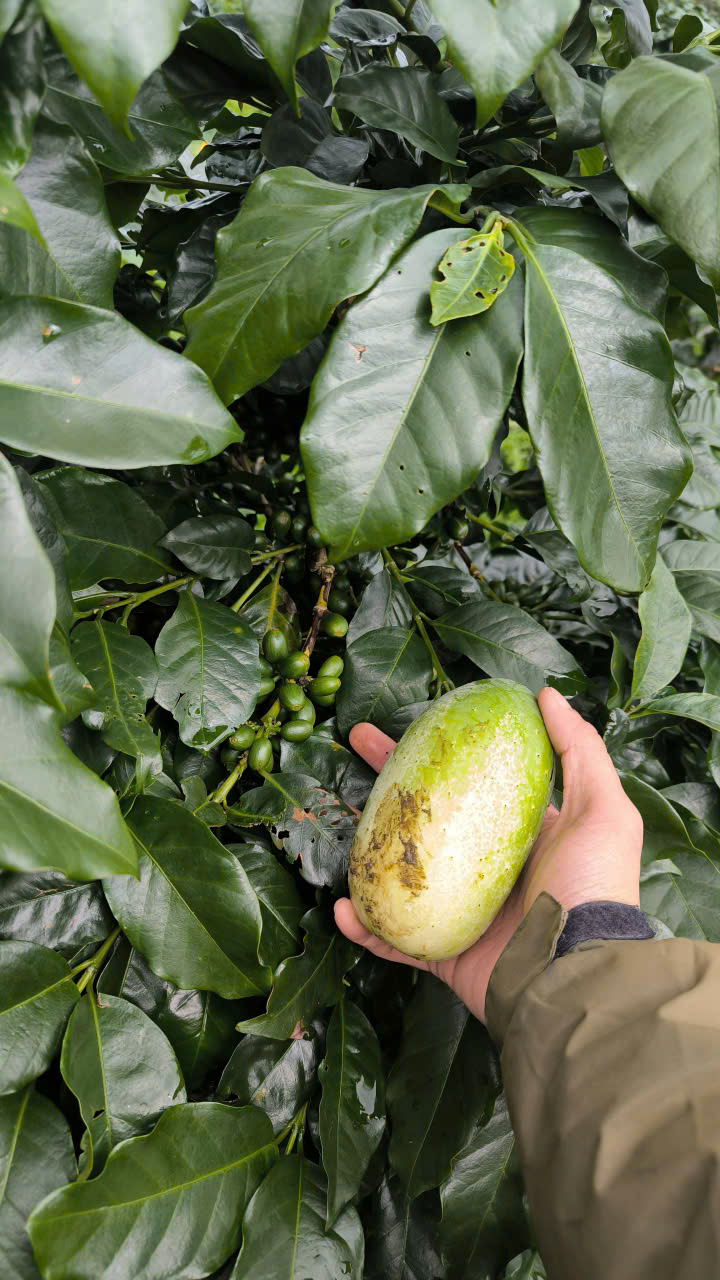
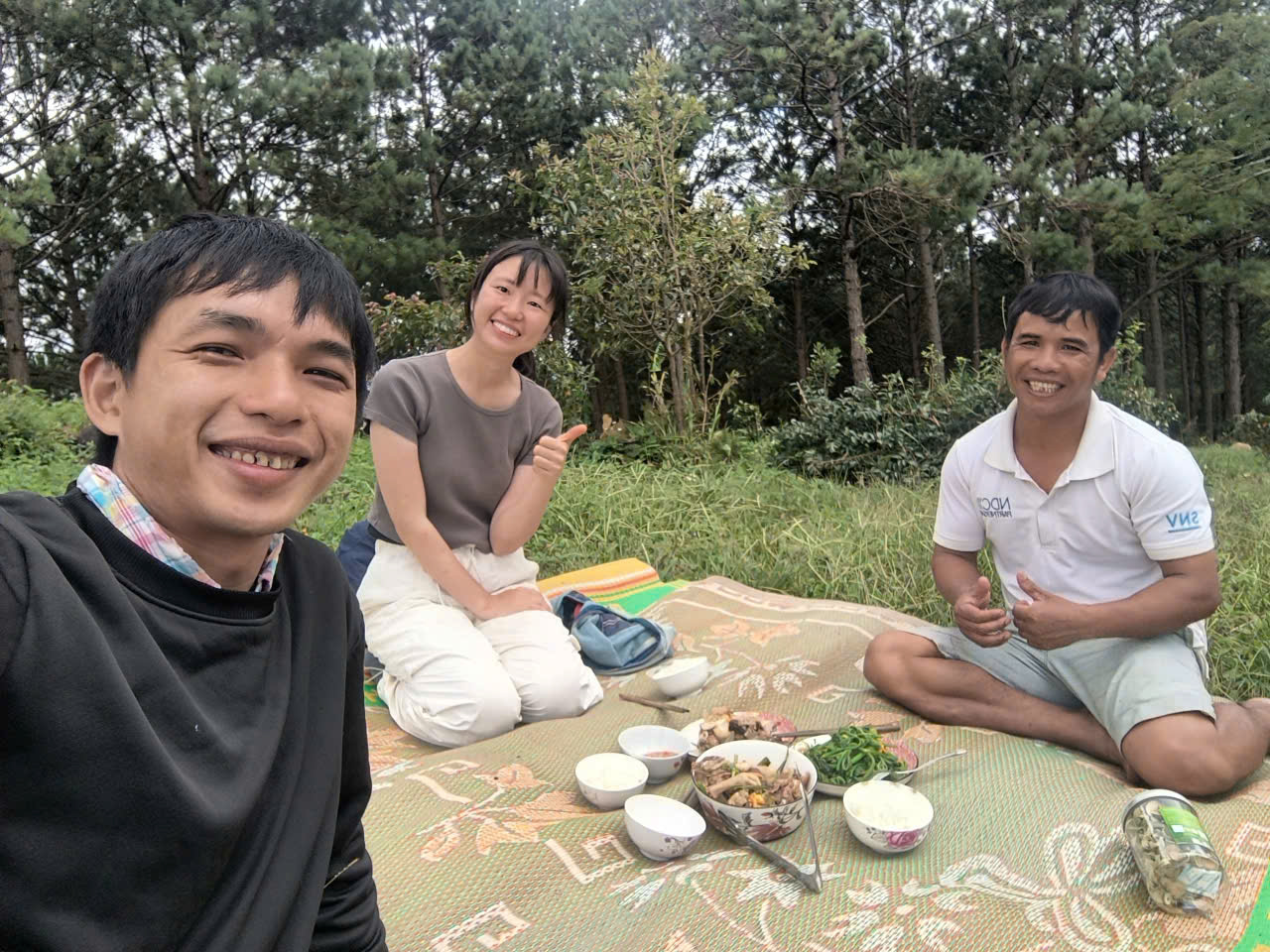
My personal journey has always followed one thread: connecting the farm to the final cup. From cultivating beans to roasting and brewing — I’ve spent the last eight years refining each step, committed to doing it the hard way, the right way. HuyEco Coffee & Culture is a space where that philosophy takes shape — built on transparent sourcing, local knowledge, and regenerative practice.
And this visit to Xã Lát? It reminded me that sustainable coffee isn’t a future dream. It’s already happening — with or without us.
But if we’re willing to meet farmers at eye level — to see their expertise, and pay for their value — then the future tastes different. Richer. Deeper. More honest.
🔹 HuyEco Coffee Tour – Witness rich soil, green cover, and thriving coffee trees
🔹 Farm Experience – Learn how to test soil, apply organic fertilizers, and intercrop on steep slopes
🔹 HuyEco Café – Enjoy coffee grown with love and regenerative farming knowledge
📍 Address: Alley 29, 3/4 Street, Ward 3, Da Lat, Vietnam
📌 Map: View on Google Maps
🌍 Booking tour: HuyEco Coffee Tour
📦 Order Coffee: huyeco.vn/order-coffee
📹 YouTube: HuyEco Coffee & Culture
Introducing HuyEco & Our Sustainable Coffee Journey
Learn about our mission, values, and why coffee is more than just a bean — it’s a way of life.
Arabica Coffee Tour – A Farm-to-Cup Experience in Da Lat
Discover how we connect visitors with farmers, soil, and stories through immersive coffee tours.
Living Coffee Ecosystem – How We Grow Coffee at HuyEco
Explore our regenerative approach: composting, intercropping, and growing with biodiversity.
Grafting Resilience – Climate-Smart Coffee Farming
How local farmers adapt to climate change by grafting Robusta onto Liberica rootstock.
Order Coffee from the Farm
Taste the story — specialty coffee grown with care, available for direct order.
What is Regenerative Coffee? – Peak State Coffee
A clear introduction to regenerative coffee farming and why it matters for soil, climate, and flavor.
Guide to Regenerative Coffee Farming – Alliance Bioversity & CIAT
A practical guidebook for farmers and agronomists on implementing regenerative practices.
Benefits of Intercropping – FarmPractices
Learn how native crops like squash and cucumber help manage weeds and improve soil health.
Challenges of Organic Farming – TechSci Research
A realistic look at pest pressure, yield drops, and how farmers navigate the organic transition.
Exploring Coffee’s Impact on Local Communities – TryJustCoffee
How coffee connects people, supports economies, and builds trust from farm to cup.
Reader Comments
Newer articles
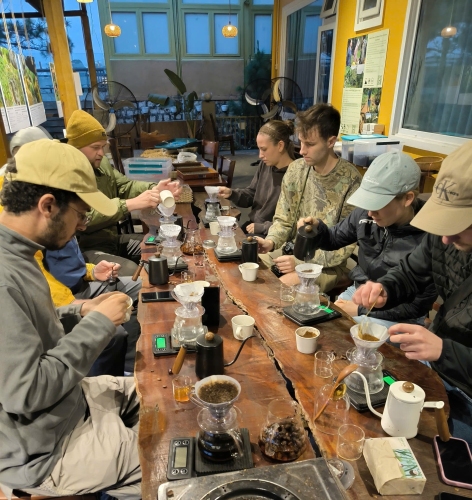
Enjoy specialty coffee at HuyEco Coffee & Culture near Da Lat center. Visit our café, explore the coffee museum & exhibition, and taste Arabica & Robusta from sustainable farms.
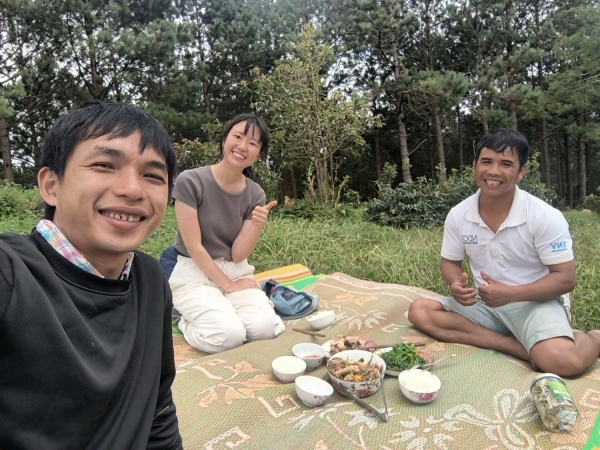
Discover the story of farmer Cường in Da Lat, Vietnam, and how Huyeco partners with smallholder farmers to grow Arabica coffee sustainably — without chemicals, with compost, and with deep respect for local culture
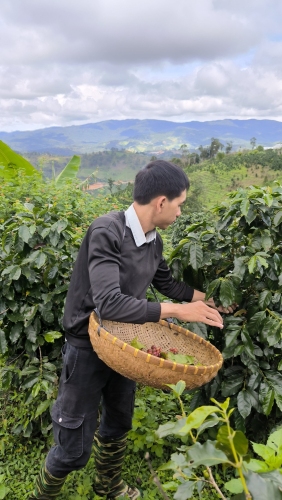
Discover HuyEco’s 2025 sustainable coffee plan in Da Lat — featuring ripe cherry picking, honey processing, ethnic farmer partnerships, and zero-waste Cascara tea. Transparent, ethical, and climate-resilient from farm to cup.
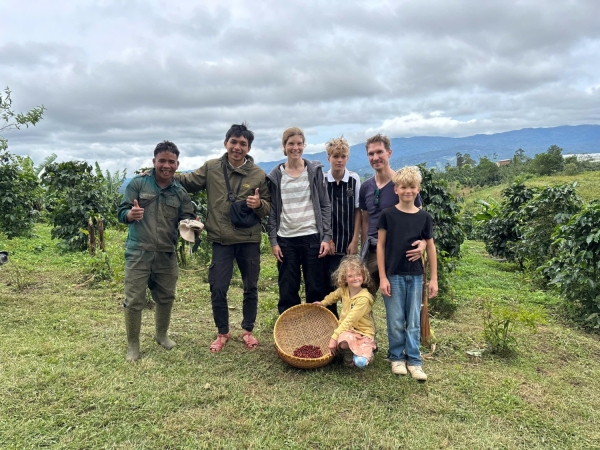
Join our half-day coffee tour in Da Lat and explore sustainable farming, biodiversity, and local culture. Learn how Arabica and Robusta are grown, harvested, and roasted with care — from soil to cup.

Explore Vietnam’s most authentic coffee experience in Da Lat. Join HuyEco’s farm-to-cup tours, taste organic beans, and learn about sustainable farming directly from the grower.

Explore the real-life challenges and hopes of coffee farmers in Da Lat. From strip-picked commercial harvests to raised-bed drying and chemical-free ecosystems — this story reveals what sustainable coffee truly means, and why HuyEco is committed to making it possible.

Follow a personal journey into Da Lat’s remote coffee farms, where sustainable living and local wisdom shape every bean — from forest to cup.

Learn how a manual coffee pulping machine helped HuyEco improve quality, reduce waste, and share the story of sustainable coffee with travelers in Da Lat

Follow the journey of HuyEco Farm in Da Lat, where coffee grows under forest canopy and sustainability meets community. Discover how regenerative farming and local tourism are reshaping Vietnam’s coffee culture

Join a behind-the-scenes journey to Xã Lát, Da Lat — where sustainable coffee isn’t a trend, but a quiet revolution. From compost-fed soil to community wisdom, this field note documents real partnerships and the honest work of regenerative farming.